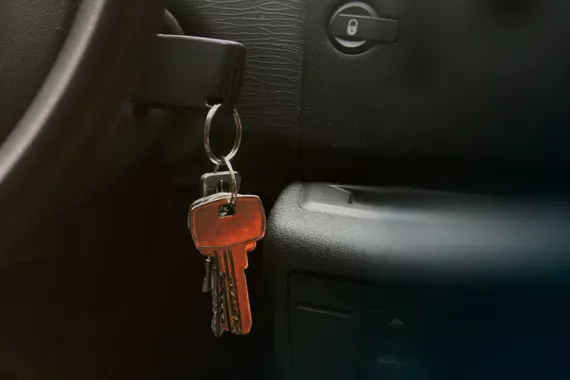
Case Overview
General Motors knowingly put drivers in harm’s way for more than 10 years by not recalling millions of vehicles for defective ignition switches. Since January 2014, GM has recalled almost 15 million vehicles related to ignition defects. These defects have been linked to 124 deaths, 17 injuries resulting in either quadriplegia, paraplegia, double amputation, permanent brain damage or pervasive burns and 258 injuries requiring hospitalization or outpatient medical treatment. These defects, however, may have potentially injured countless others as more than 3,900 claims submitted to GM for ignition defect-related injuries and deaths were deemed ineligible for compensation for various reasons. Many people may unknowingly have been involved in an accident caused by these defects.
GM concealed these defects and continued to promote the defective vehicles as safe and reliable, despite knowing otherwise. Documents provided to Congress by GM confirm its employees knew about the ignition problems as early as 2004 and decided not to disclose this information or redesign because of the cost. According to reports, the cost of changing the deadly ignition switches would have been $.57 per car..
Our Experience in GM Litigation
In August 2014, Motley Rice co-founder Joe Rice was appointed to the Plaintiffs’ Executive Committee for the multidistrict litigation In re General Motors LLC Ignition Switch Litigation, which alleges financial injury due to the unsafe condition of GM vehicles recalled for ignition defects. Visit the official GM Ignition Switch Litigation website, created and maintained by the parties at the request of MDL Transferee Judge Jesse M. Furman of the U.S. District Court for the Southern District of New York: http://gmignitionmdl.com.
Background on GM Catastrophic Injury Lawsuits
On March 17, 2014, General Motors’ CEO Mary Barra admitted that GM knew about the vehicle ignition defects that have been linked to more than 50 deaths and potentially injured countless more, but failed to move fast enough to fix the problems. Many people may unknowingly have been involved in an accident caused by these defects.
Recalled GM Vehicles
The total of recalled vehicles for ignition defects is estimated to be almost 15 million vehicles worldwide, including:
- Buick Allure 2005–2009
- Buick LaCrosse 2005–2009
- Buick Lucerne all years
- Buick Regal GS 2004–2005
- Buick Regal LS 2004–2005
- Cadillac CTS 2003–2014
- Cadillac Deville 2000–2005
- Cadillac DTS 2004–2011
- Cadillac SRX 2004–2006
- Chevrolet Camaro 2010–2014
- Chevrolet Caprice 2011 – 2013
- Chevrolet Cobalt all years
- Chevrolet HHR all years
- Chevrolet Impala 2000–2014
- Chevrolet Malibu 1997–2005
- Chevrolet Monte Carlo 2000–2007
- Daewoo G2X 2007–2009
- Oldsmobile Intrique 1998–2002
- Oldsmobile Alero 1999–2004
- Opel GT 2007–2010
- Pontiac G5 all years
- Pontiac G8 2008 – 2009
- Pontiac Grand Am 1999–2005
- Pontiac Grand Prix 2004–2008
- Pontiac Pursuit all years
- Pontiac Solstice all years
- Saturn Ion all years
- Saturn Sky all years
- Saturn Vue 2002–2004
- Vauxhall GT 2007–2010
Dangers of an Ignition Switch Defect
The torque on the ignition switch was designed well below GM’s own specifications, causing the key to inadvertently turn from run to accessory or off, without warning causing moving stalls and a complete loss of power. The loss of power affects the power braking and steering in addition to airbags, potentially causing the driver to lose control and be unable to stop or control the vehicle. Most significantly, the airbags would not be able to deploy in a front-impact crash.
Holding GM Accountable
GM has acknowledged that the defects were noticed as early as 2004, and a 2007 presentation prepared by the National Highway Traffic Safety Administration’s (NHTSA) Defects Assessment Division cited 29 complaints and four fatal crashes related to a review of failed airbag deployments in some Cobalt and Saturn Ion vehicles. GM’s initial recall of 2.6 million cars for this defect was not issued until Feb. 13, 2014, with additional recalls made in June 2014, including more than half a million 2010-2014 Chevrolet Camaros.
A memo issued by The U.S. House of Representatives Energy & Commerce Committee, which held hearings on the GM recall in early April 2014, detailed that GM rejected a proposed repair of the faulty ignition switches in 2005 due to the cost. The ongoing congressional investigation into the recall also claims that both GM and federal safety regulators should have identified and fixed the problem prior to a series of fatal crashes due to the defect.
According to the TREAD Act (Transportation Recall Enhancement, Accountability and Documentation Act), when a manufacturer learns that a vehicle contains a defect related to motor vehicle safety, it must also notify the owners, purchasers and dealers of the vehicle within a reasonable amount of time.


